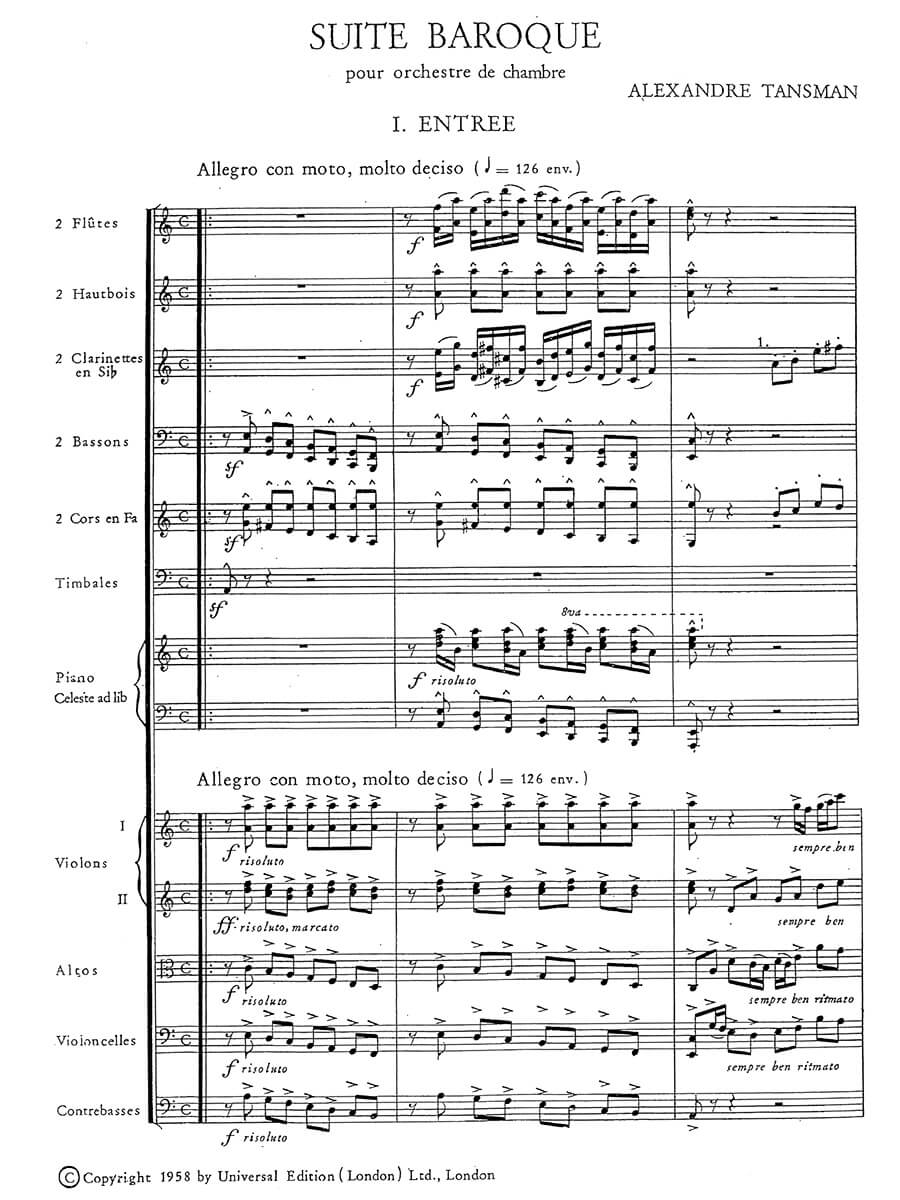Suite Baroque for chamber orchestra
Tansman, Alexandre
20,00 €
Preface
Alexandre Tansman – Suite Baroque
(b. Lodz, Poland, 12 June 1897 – d. Paris, 15 November 1986)
I. Entrée: Allegro con moteo, molto deciso
II. Sarabande: Très lent
III. Divertissement: Vivace
IV. Aria: Adagio sostenuto
V. Riguaudon : Allegro giocoso
Preface
Alexandre (Aleksander) Tansman was born in Łódź, Poland, on June 12, 1897, in a music-loving family of the Jewish bourgeoisie. In 1908 he began his studies at the Łódź Conservatory and in 1918, furthered his studies with a doctorate in law at the University of Warsaw. In 1919, he won the first, second, and third prize in the Polish National Music Competition, for which he entered compositions under three different names. Following the competition, Tansman moved to Paris, aged twenty-three. In inter-war Paris, he dived into a vibrant melting pot of musicians, composers and artists. There he met Igor Stravinsky and became close with Maurice Ravel who introduced him to his publisher. For his first Parisian recital in 1920, Tansman played his own Polish Album, a choice which demonstrated the deep Polish roots of his music. He also became friends with four other composers – Conrad Beck, Tibor Harsányi, Bohuslav Martinů, Marcel Mihalovici and Alexander Tcherepnin – who became known, sometimes, as the “École de Paris.” Talking about his prolific time in Paris, Tansman said: „These were times that, from my perspective, could no longer be repeated. From an artistic point of view, this was a marvellous time. There was a kind of emulation that took place through artistic encounters and gatherings. The Parisian salons have remained historic in my memory. We would get together, make music, and meet people from around the world. This was an atmosphere devoid of any cliques. Very quickly, I formed ties with all the young composers of the time“.1
Tansman’s international success at an early age was a result of successful tours in America in 1927, and later Europe, Asia, Palestine and India (1932-33) where he was a personal guest of Mahatma Gandhi and Hirohito, the Emperor of Japan. Early in his career, his music was performed by some of the most prominent conductors of the time, including Vladimir Golschmann, Serge Koussevitzky, Arturo Toscanini, Willem Mengelberg and Leopold Stokowski. …
Read full preface > HERE
Score Data
| Edition | Repertoire Explorer |
|---|---|
| Genre | Orchestra |
| Printing | Reprint |
| Pages | 52 |
